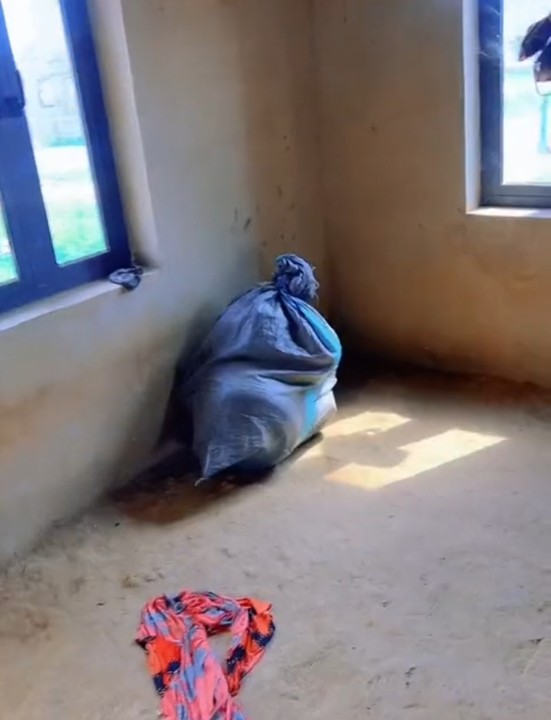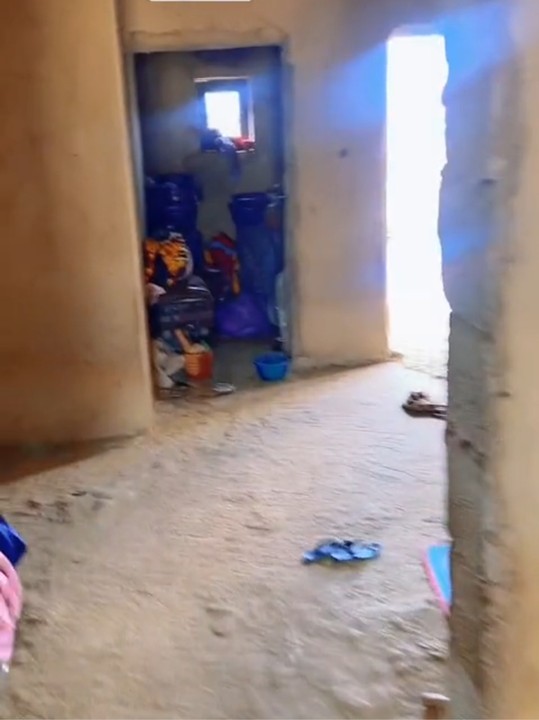Uninvited Tenants: Woman Returns Home Only To Discover Northerners Occupying Her Uncompleted Property




In a turn of events that could rival any screenplay, a woman in Abuja was met with a startling discovery when she visited her uncompleted building. The property, which was on the verge of completion, had become the unexpected residence of a group of homeless individuals from the Northern region of Nigeria, specifically of Hausa/Fulani origin.
The woman, who was accompanied by her husband and an engineer, intended to inspect the progress of her construction project. However, she was greeted by the sight of the Hausa/Fulani people, who had taken shelter within the walls of her unfinished structure. Among them was a woman who had recently given birth to a child right there in the building.
Touched by the sight of the newborn, the property owner’s initial shock gave way to a sense of compassion. She held the infant in her arms and captured the moment with photographs. Despite being unprepared for such an encounter and having limited cash on hand, she generously offered the new mother 2,000 Naira.
The property owner, who boasts a portfolio of properties in Abuja, is now faced with a delicate situation. She needs to reclaim her building to resume construction but must also address the presence of the current occupants, who have established themselves without consent.
For those in similar situations, the recent reforms in Abuja’s property ownership documentation could provide guidance. These reforms aim to enhance the security of the Certificate of Occupancy issuance process, which may assist in resolving property disputes. It is advisable to seek legal counsel from real estate lawyers in Abuja, who can offer personalized advice and guide property owners through the necessary legal procedures.
As for the woman’s dilemma, a compassionate yet firm approach is recommended. She could consider providing a notice period for the occupants to find alternative housing, possibly with assistance from local social services. It’s essential to handle the situation with empathy, recognizing the occupants’ plight, while also asserting her property rights.
What are your thoughts on this situation? Share your opinions and advice in the comments below.



